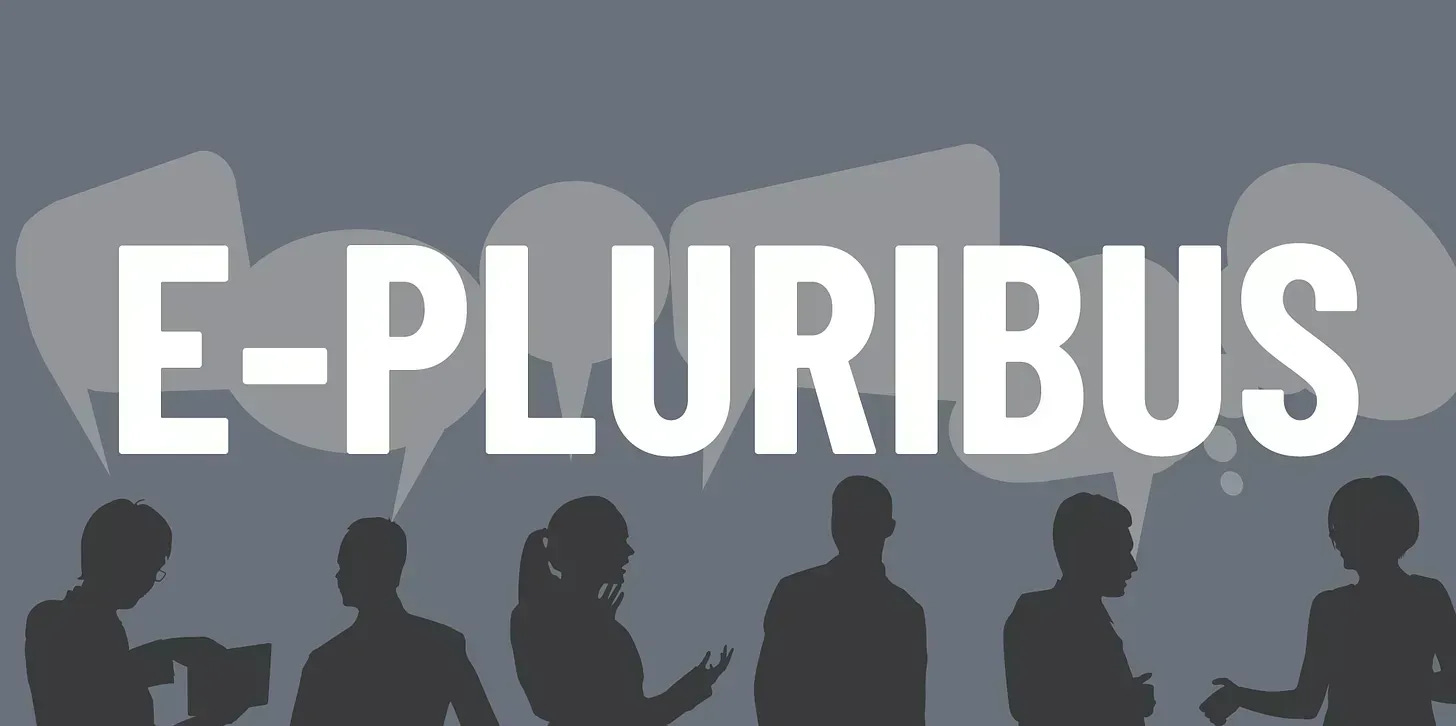E-Pluribus | April 1, 2025
SignalGate proves value of encryption software; cancel culture won't die without a fight; Harvard's fair-weather support for rule of law
A round-up of the latest and best musings on the rise of illiberalism in the public discourse:
JD Tuccille: Signal Chat Controversy Is an Endorsement of Encryption Software
Reporters have framed the revelation that the Trump Administration plans military strikes via Signal as an embarrassing faux pas for the president. Over at Reason, JD Tuccille says most commentators have missed a critical aspect of the story: the US government relies on encrypted messaging software like Signal because it really protects user privacy:
The drama this week over the Trump administration Signal group chat about a strike on Houthis in Yemen in which The Atlantic Editor in Chief Jeffrey Goldberg was inadvertently included has been popcorn-worthy, if you're into that sort of thing. But beyond the resultant posturing between screw-up bureaucrats and pompous politicians, we learned something of value from the incident: Government officials use the popular encrypted messaging app because the intelligence community considers it secure. While the political class argues over the details, the rest of us should consider that an endorsement of this technology.
…
One indication that private encryption software really is resistant to even sophisticated eavesdropping is the degree to which governments hate it. U.S. federal officials have long pushed for backdoor access to encrypted communications. Apple is currently battling British officials over that government's requirements that the company compromise the encryption offered to users so that law enforcement can paw through private data. The Signal Foundation—creator of the open-source software at the center of the current controversy—threatened to leave the U.K. in 2023 during an earlier anti-encryption frenzy while Germany-based Tutanota said it would refuse to comply.
But then we got news of a group chat on Signal including such officials as Vice President J.D. Vance, Director of National Intelligence Tulsi Gabbard, Defense Secretary Pete Hegseth, CIA Director John Ratcliffe, National Security Adviser Mike Waltz and, of course, Goldberg as a plus-one. If administration officials including several from the intelligence community are willing to hold a conversation on the app, that's important added testimony to the security of the software.
Ilya Shapiro: Ohio Northern University’s Disregard for the Rule of Law
Ohio Northern University (ONU) unceremoniously fired law professor Scott Gerber for challenging the school’s DEI policies. He sued ONU for wrongful termination, and the university is upping the ante by counter-suing Gerber. Manhattan Institute legal scholar Ilya Shapiro says the school’s actions—meritless though they are—demonstrate that social justice campaigners won’t abandon cancel culture without a fight:
ONU’s meritless suit amounts to nothing more than the weaponization of the law—the very thing it accuses Gerber of doing. After state courts refused ONU’s pleas to dismiss Gerber’s suit—and with the professor’s having balked at the school’s lowball settlement offer—the university now seeks to punish him by burdening him with further litigation costs.
Gerber’s ongoing mistreatment at the hands of his former employer is a reminder that, even as Donald Trump’s election marked a broader political and cultural “vibe shift,” the discriminatory practices entrenched in higher education have not gone away—nor have the administrators who enforce them.
In the face of Supreme Court rulings and executive action, administrators like those at ONU are engaging in a kind of institutional resistance, recalling the Jim Crow South’s defiance of desegregation orders. If this case reveals anything, it’s that higher education remains in the grip of identitarians who will attack their critics and manipulate the law to protect their agenda.
Consider the facts: Gerber is a respected academic and a beloved teacher. Yet ONU saw fit to humiliate him in front of his students and ultimately dismiss him for the “crime” of speaking out against racially discriminatory hiring practices. The school has already violated his due process rights and now seeks to silence him further. Its leadership has shown open contempt for the rule of law, filing a retaliatory countersuit against Gerber simply for defending his conscience.
Those of us opposing DEI and other radical ideologies should take note: the movement and its adherents are not backing down.
Adrian Vermeule: An Open Letter To My Students
In a related story, Harvard Law professor Adrian Vermeule rebuffs his colleagues who recently penned an open letter attacking the Trump Administration for supposedly assaulting the rule of law. Vermeule argues that his fellow professors only seem to care about the rule of law when their political opponents abuse it. If they were really concerned about this bedrock legal principle, they would defend it consistently—no matter who was attacking it:
The real issue is that the collective letter, although no doubt offered in good faith by its signatories, is shot through with selective ideological blindness. It is, I am sorry to say, a sectarian document cast as an appeal to high principle.
Let us here ignore all other political controversies in recent years, and confine ourselves to those directly involving lawyers, judges, and legal representation: Where were the letter’s signatories when federal prosecutors took the unprecedented step of bringing dozens of criminal charges against a former president, who also happened to be the leading electoral opponent of the then-incumbent president? Where were the signatories when Jeff Clark, Rudy Giuliani, John Eastman, and other lawyers were disbarred or threatened with disbarment, and indeed prosecuted, for their representation of President Trump? Was this not a threat to the rule of law?
Where were the signatories when radical activists menaced Supreme Court Justices in their homes, or when a mob hammered on the doors of the Supreme Court itself? Where were the signatories when the Senate Minority Leader shouted to an angry crowd outside the Court that “I want to tell you Gorsuch, I want to tell you Kavanaugh, you have released the whirlwind and you will pay the price. You won’t know what hit you if you go forward with these awful decisions”? Were these not also literal threats to the rule of law?
Now, of course, one can always say that “well those prosecutions or disbarments or protests were actually warranted, you see”; and the collective letter is careful to insert the qualifier that it only defends “lawful and ethical” representation. But the very question at issue is what is to count as “lawful and ethical,” and who gets to define what those terms mean. And that is what makes the ideological selectivity of the letter both painfully obvious and deeply corrosive of the shared ideal of the rule of law to which it appeals. Two can play at the game of ideological definition, but when they do, both will lose.
Around Twitter (X)
Steve McGuire says the hostile reaction from Vermeule and so many others should help the academy realize just how little Americans think of higher ed these days:
With so many young people these days eager to gut the First Amendment, Greg Lukianoff offers an important reminder: free speech is designed to protect them from the established political order:
Footage has emerged from the UK showing police in Hertfordshire arresting two parents in front of their daughter for complaining about her school on WhatsApp. The story was reported over the weekend; the video is here:









